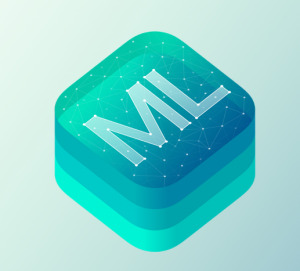Nvidia, Intel Not Welcomed in New Apple AI and HPC Development Tools

New Mac developer tools will leverage Apple’s homegrown chips, limiting HPC users’ ability to use parallel programming frameworks from Intel or Nvidia.
Apple’s latest programming framework, Xcode 16, was introduced at the recent WWDC conference and has a host of new features that use AI to make programming and application integration easier.
However, it also adds new capabilities to its Swift programming language with features like Code Complete, which can predict and complete code. Another feature called SwiftAssist answers coding questions and helps with APIs.
Apple’s PCs now use homegrown Apple Silicon, which includes GPUs, CPUs, and AI chips. Macs previously relied on x86 chips and GPUs from AMD and Nvidia but no longer support external GPUs. That puts Mac developers in a box by providing limited environments in which to write AI applications.
At WWDC, Apple encouraged developers to move machine-learning models to its CoreML format, which leverages homegrown CPUs, GPUs, and neural processors.

An open-source Python package called CoreML Tools converts PyTorch models to work with Apple’s AI hardware. Developers can also use JAX, TensorFlow, or MLX.
Intel and Nvidia aren’t wasting time with MacOS support. Intel pulled MacOS support for its latest 2024 version of the OneAPI parallel programming framework.
Apple shared its broader AI plans at WWDC, revealing that it had trained its LLMs on Google’s Tensor Processing Unit.
Apple has also established its own Private Compute Cloud, which will be hosted in Google’s data centers. Apple will not rely on Nvidia GPUs for AI in the cloud as its AI strategy is focused on power efficiency, for which it has its own arithmetic techniques. Nvidia’s GPUs run training and inference on larger LLMs that consume more power.
Nvidia discontinued MacOS support for its AI and HPC CUDA programming tools many years ago. Developers will have to switch to Linux or Windows to create applications for Nvidia GPUs.
CUDA provides the necessary tools for AI applications to run on Nvidia hardware. Like Apple, Nvidia is trying to lock down customers to its hardware and software. Nvidia’s development tools are packaged into a suite called AI Enterprise, which isn’t free.
Apple has its own gaming and AI framework called Metal, which is optimized for its GPUs. A handful of very old AMD and Nvidia GPUs support Metal, which is now exclusively relegated to Apple’s in-house GPU.
However, Mac developers will be able to work with Nvidia GPUs hosted in the cloud, which is mostly the case today. Cloud providers typically provide working environments for Nvidia GPUs without any ties to PC operating systems.











